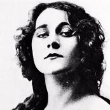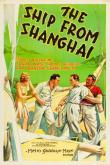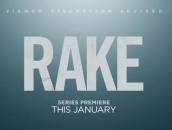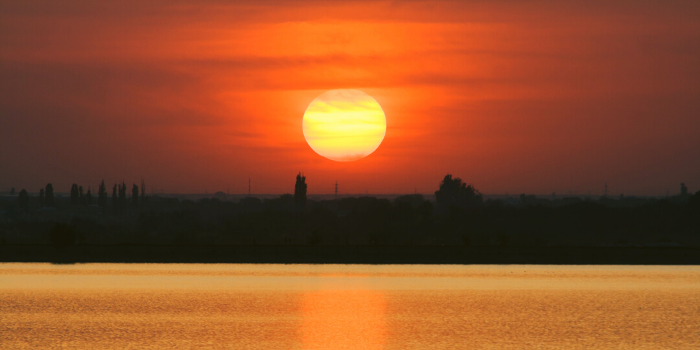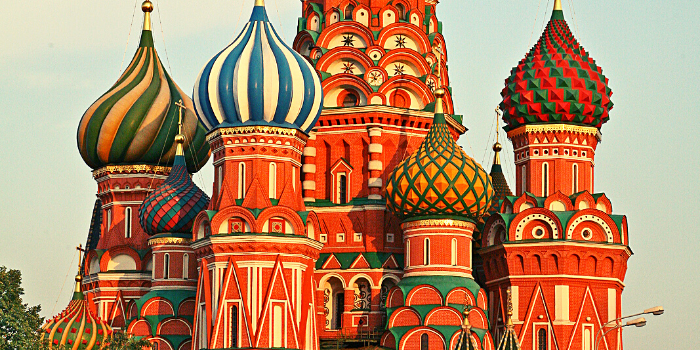AustLit
Compiled by Dr Catriona Mills and Dr Arti Singh
- Australians and Adaptations
- Adaptations on Australian Screens: A Brief Introduction
- Adaptations on the Australian Screen in the Silent Era, 1900-1929
- Australian Writers Adapted Internationally
- Adaptations on Television
-
Data Visualisation: Adaptations from 2010-2019
- Data Visualisation: Adaptations from 2010-2019
- —. Graph 1: All Adaptations by Form
- Performance Works
- —. Graph 2: Film and Television
- —. Graph 3: Drama
- —. Graph 4: Musical Theatre
- Spotlight: Comparing Film/TV, Drama, and Musical Theatre
- Written Works
- —. Graph 5: Novels
- —. Graph 6: Picture Books
- —. Graph 7: Graphic Novels
- Spotlight: Comparing Novels, Picture Books, and Graphic Novels
- The Frequently Adapted
- Acknowledgements
-
Just as Australians were adapting material (both their own and that of overseas writers) for Australian films, the film and early television industries in the US were mining Australian works for their own film material. Similarly, Australian writers were moving into the bigger American market, where a portion of their work involved adapting other forms of writing to the screen.
The page gathers together resources on adaptations on American screens, both of Australian writers and by Australian writers, from the early days of silent cinema to modern prestige television.
This exhibition is not a comprehensive list. For a full list of AustLit records of films and television made in the United States (including works made in the United States by Australian script-writers, works set in Australia but made in the United States, and American adaptations of Australian works), click here.
-
-
(Display Format : Landscape)(Scheme : #bee9d7)
Spotlight on C. Haddon Chambers
Australian-born playwright C. Haddon Chambers was a popular source for American silent film-makers. His plays The Idler, Captain Swift, and Passers-By were each adapted twice in the six years from 1914 to 1920.
-
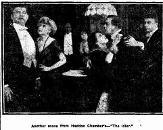 Another publicity still from The Idler (Sunday Times, 9 April 1916, p.6)3566090367341547030.jpg
Another publicity still from The Idler (Sunday Times, 9 April 1916, p.6)3566090367341547030.jpg The Idler 1914 single work film/TV
The Idler 1914 single work film/TVThis version of Chambers' play made it to Australian screens some two years after it was originally produced, where it was advertised in Australian newspapers as 'by the one Australian who, as a dramatist, has achieved international fame' (Sunday Times, 9 April 1916, p.6).
-
This was the second of two adaptations of C. Haddon Chambers' play to be produced in the USA in 1914.
-
Also produced in 1914 was this adaptation of Captain Swift, which, though sub-titled a 'comedy drama', does involve both bushrangers and suicide, neither of which are particularly comic subjects.
-
A later adaption of Captain Swift, this one appeared in 1920.
-
The first film version of Haddon Chambers's play Passers By was scripted by the incredibly prolific Stanner E.V. Taylor, who scripted over 100 films between 1908 and 1929.
-
This second adaptation of Passers By was widely distributed, with elaborate, melodramatic posters.
-
Unusually for C. Haddon Chambers, this work was only adapted once.
-
Already deeply melodramatic on the stage, Haddon Chambers's play was adapted into an even more melodramatic film.
-
-
(Display Format : Landscape)(Scheme : #bee9d7)
Other American Adaptations
C. Haddon Chambers may have been the most frequently adapted Australian in the American silent film industry, but he wasn't unique. And the American film and television industry has continued to adapt Australian works in the century since.
Below are a collection of other American films adapted from Australian source material. This is a sample, rather than a comprehensive list: see a more complete list here.
-
The original for this film was written by E. L. Grant Watson, an Englishman who fell in love with the Australian bush during long scientific expeditions in the north-west; he set the novel on which this film was based in Western Australia.
-
Unusually in this list, the author behind this film's source material was a woman: Edith Lyttleton wrote 'manly', colonial literature under the ambiguous pseudonym G. B. Lancaster, including the 1910 novel Jim of the Ranges, on which this film was based. It was directed by pioneering director John Ford.
-
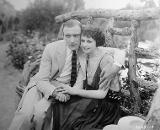 Frank Mayo and Louise Lorraine in The Altar Stairs (via A certain Cinema by Sergio Leeman: http://acertaincinema.com/)5062450446706216743.jpg
Frank Mayo and Louise Lorraine in The Altar Stairs (via A certain Cinema by Sergio Leeman: http://acertaincinema.com/)5062450446706216743.jpg The Altar Stairs George Hively , 1922 single work film/TV
The Altar Stairs George Hively , 1922 single work film/TVAnother G.B. Lancaster novel inspired this film, but this time set in the islands of the Pacific.
-
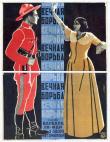 Russian release poster853173884486291867.jpg
Russian release poster853173884486291867.jpg The Eternal Struggle J. G. Hawks , Monte M. Katterjohn , 1923 single work film/TV
The Eternal Struggle J. G. Hawks , Monte M. Katterjohn , 1923 single work film/TVBased on yet another G.B. Lancaster novel, The Eternal Struggle is set in North Vancouver, and was written while the novelist was living in the UK.
-
Dale Collins was another regularly adapted Australian novelist; this one began life as his novel The Sentimentalists.
-
Another Dale Collins novel was the basis for this film, this time Ordeal : A Novel.
-
Based on the debut novel from prolific romance novelist Maysie Greig, The Love Gamble was written by husband-and-wife writing team Frederick and Fanny Hatton.
-
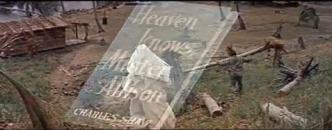 Screen cap from promotional trailer4004269134135966222.jpg
Screen cap from promotional trailer4004269134135966222.jpg Heaven Knows, Mr Allison John Lee Mahin , John Huston , 1957 single work film/TV
Heaven Knows, Mr Allison John Lee Mahin , John Huston , 1957 single work film/TVStarring Deborah Kerr and Robert Mitchum, this film was based on a novel by Tasmanian-born Charles Shaw. It netted Deborah Kerr an Oscar nomination for best actress.
-
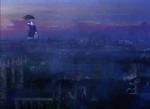 Screen cap from promotional trailermarypoppinsimage_C[hash]8d9.jpg
Screen cap from promotional trailermarypoppinsimage_C[hash]8d9.jpg Mary Poppins Bill Walsh , Don Da Gradi , Richard M. Sherman , Robert B. Sherman , 1964 single work film/TV
Mary Poppins Bill Walsh , Don Da Gradi , Richard M. Sherman , Robert B. Sherman , 1964 single work film/TVPerhaps the most famous Australian adaptation of all: P. L. Travers' novel was given the full blockbuster Hollywood treatment in this perennially popular film.
-
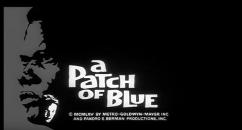 Screen cap from promotional trailer2262939800044504857.jpg
Screen cap from promotional trailer2262939800044504857.jpg A Patch of Blue Guy Mervin Charles Green , 1965 single work film/TV
A Patch of Blue Guy Mervin Charles Green , 1965 single work film/TVStarring Shelley Winters and Sidney Poitier, this film, which garnered a range of award nominations and wins, was based on Elizabeth Kata's Be Ready with Bells and Drums; Kata was born in Australia to Scottish parents, and later married into a Japanese family and moved to Tokyo.
-
Made for MGM, this adaptation starred Anthony Quinn, Laurence Olivier, and John Gielgud, as well as Australian Leo McKern.
-
Perhaps the best known example, Steven Spielberg's adaptation of Thomas Keneally's novel Schindler's Ark won seven of the twelve Oscars for which it was nominated, including Best Adapted Screenplay.
-
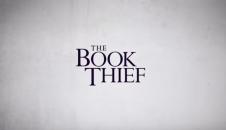 Screen cap from promotional trailer5283071832583678556.jpg
Screen cap from promotional trailer5283071832583678556.jpg The Book Thief Michael Petroni , 2013 single work film/TV
The Book Thief Michael Petroni , 2013 single work film/TVAdapted by Australian-born, US-based script-writer from Markus Zusak's most successful novel, The Book Thief, like Schindler's List, was set in Germany during World War II.
-
The popular Australian television series starring Richard Roxborough as the charming but morally flexible protagonist was not a success when adapted for American audiences with Greg Kinnear in the lead role.
-
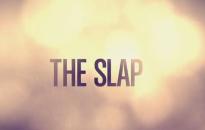 Screen cap from promotional trailer7498115241673112509.jpg
Screen cap from promotional trailer7498115241673112509.jpg The Slap Jon Robin Baitz , 2015 series - publisher film/TV
The Slap Jon Robin Baitz , 2015 series - publisher film/TVAfter being adapted to Australian television, The Slap was adapted for American audiences, with Melissa George reprising her role as the mother of the child at the centre of the scandal.
-
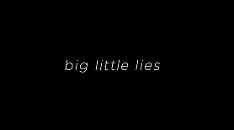 Screen cap from promotional trailer3584508929309248907.jpg
Screen cap from promotional trailer3584508929309248907.jpg Big Little Lies David E. Kelley , 2017 series - publisher film/TV
Big Little Lies David E. Kelley , 2017 series - publisher film/TVAdapted by television powerhouse David E. Kelley, series one of Big Little Lies moved the novel's action to California. The program was later extended to a second series, which developed original material.
Kelley later announced an adaptation of another Liane Moriarty novel, Nine Perfect Strangers.
-
-
(Display Format : Landscape)(Scheme : #bee9d7)
Spotlight on Sumner Locke Elliott
In 1948—just before the furious debate over whether to censor or ban his play Rusty Bugles—Sumner Locke Elliott left Australia for the United States, in pursuit of a career in television script-writing. He did write original scripts for the various anthology series for which he wrote, but nearly half of his scripts for American television were adaptations of novels, short stories, and even films.
Explore those adaptations in the list below.
-
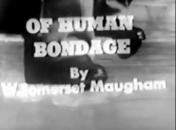 Screen cap from opening credits8636162701790047856.jpg
Screen cap from opening credits8636162701790047856.jpg Of Human Bondage Sumner Locke Elliott , 1949 single work film/TV
Of Human Bondage Sumner Locke Elliott , 1949 single work film/TVThe first adaptation that he penned in the United States was this television version of W. Somerset Maugham's Of Human Bondage.
-
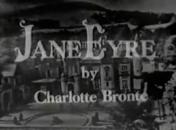 Screen cap from opening credits3899122629203598768.jpg
Screen cap from opening credits3899122629203598768.jpg Jane Eyre Sumner Locke Elliott , 1949 single work film/TV
Jane Eyre Sumner Locke Elliott , 1949 single work film/TVOf Human Bondage was rapidly followed by this version of Jane Eyre, starring a very young Charlton Heston.
-
The first of two scripts that Sumner Locke Elliott adapted from Louisa May Alcott's novel, this one aired on 18 December 1950.
-
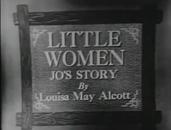 Screen cap from opening credits5576104913470096463.jpg
Screen cap from opening credits5576104913470096463.jpg Little Women : Jo's Story Sumner Locke Elliott , 1950 single work film/TV
Little Women : Jo's Story Sumner Locke Elliott , 1950 single work film/TVThe second of Elliott's adaptations of Alcott's work, this followed its predecessor by exactly a week, airing on Christmas Day, 1950.
-
The Willow Cabin, which would become English novelist Pamela Frankau's best-known work, was only published the year before Elliott wrote this adaptation for Studio One.
-
This adaptation was based on a novella by American writer Henry James.
-
Another contemporary adaptation, so contemporary that Mary Sarton's original novel and Sumner Locke Elliott's adaptation were both released in 1950.
-
In 1952, Studio One aired Sumner Locke Elliott's adaptation of Frank Baker's Miss Hargreaves: A Fantasy.
-
Sumner Locke Elliott's adaptation of John Dickson Carr's swashbuckling time-travel fantasy was broadcast on Studio One in 1952, the year after the novel was published.
-
With his shift from CBS to NBC, Sumner Locke Elliott had the chance to explore a different type of adaptation: adapting films for television broadcast. This version of the 1946 film The Chase (itself an adaptation of the 1944 novel The Black Path of Fear) was his first incursion into a specialised form of adaptation.
-
Buy Me Blue Ribbons is unusual among Sumner Locke Elliott's adaptations, because the source material is his own play, Buy Me Blue Ribbons : Comedy in Three Acts.
-
Sumner Locke Elliott's adaptation of Clare Boothe Luce's play for an ensemble of women was broadcast in 1955.
-
Sumner Locke Elliott's adaptation of Peter Pan received the highest ratings for a single television program in television history to that date, as well as receiving critical acclaim.
-
In 1958, Sumner Locke Elliott scripted this adaptation of Alexandre Dumas's adventure novel.
-
Sumner Locke Elliott adapted this script from Terence Rattigan's play of the same name, itself based on real events.
-
Based on Elizabeth Ferrars' 1956 novel Never Say Die, this was a tale of greedy heirs, sinister gardeners, and missing aunts. The work was an early outing for director Paul Bogart, who went on to win five Emmys during a very long career.
-
Another adaptation of a film for television, Notorious saw Sumner Locke Elliott adapting the work of the 'Shakespeare of Hollywood', Ben Hecht.
-
The second of Sumner Locke Elliott's two adaptations of Ben Hecht's film scripts.
-
One of Sumner Locke Elliott's adaptations was this version of Anthony Hope's Ruritanian romance.
-
-
-
(Scheme : #e63636)
Alfred J. Goulding and John Farrow had sought their fortunes in Hollywood of the silent era, and Ivan Goff and Sumner Locke Elliott had followed their footsteps in the 1940s. But when television had still not yet premiered in Australia by the early 1950s, England began to look like the more attractive option for Australian script-writers.
Writers such as Peter Yeldham, Anthony Coburn, Bill Strutton, Philip Grenville Mann, Patricia Hooker, Iain MacCormick, and Ray Lawler shifted their typewriters over to the UK, where they began to write extensively for both the BBC and ITV.
Some of their works were intensively British: both Anthony Coburn and Bill Strutton, for example, wrote for Doctor Who. But some of them also produced works that were adaptations of Australian works—sometimes their own, sometimes those of other authors.
This exhibition shows a selection of works. To see all AustLit works produced by the BBC, click here.
-
-
(Display Format : Landscape)(Scheme : #bee9d7)
Australian Texts on BBC Television
Adaptations of Australian works to BBC television were perhaps less numerous than their radio counterpart–but only slightly.
The following list offers a selection of works. See a more complete list here.
-
This early television adaptation of Dion Titheradge's play was not popular with the reviewer at The Times, who felt that it limited itself too narrowly to the imagined proscenium arch: 'we should have liked to have got out of the inn parlour now and then during the 75-minute run of the play, and so have escaped from the limitations of the theatre'.
-
Alec Coppel adapted his own successful play for this BBC television version.
-
This adaptation of Ethel Turner's novel was telecast in April and May of 1953.
-
Like Coppel, Peter Kenna adapted his own play (itself written only three years previously) for this BBC version.
-
This version of Summer of the Seventeenth Doll (which may have been adapted by Ray Lawler himself) was written for the BBC's Thursday Theatre anthology series.
-
Patrick White made it to the BBC with this Jonquil Antony adaptation of A Cheery Soul for the anthology series The Wednesday Play.
-
A third anthology series—Thirty-Minute Theatre—was the vehicle for this adaptation of Pat Flower's play about a secretary who realises, as she is taking dictation for a writer's latest thriller, that she is the main character.
-
Peter Yeldham wrote this six-part series about three confidence tricksters based on his own play of the same name.
-
-
(Display Format : Landscape)(Scheme : #bee9d7)
Spotlight on Alan Seymour
Alan Seymour's earliest television script was actually an adaptation: Tomorrow's Child, an adaptation of John Coates's play that Seymour wrote for Australian television in 1957, bare months after television started in Australia.
Today, Seymour is perhaps best remembered for his Anzac Day play, The One Day of the Year. He moved to the UK to make his livelihod as a script-writer, and a large part of that work included adaptations.
This tile lists some of Seymour's adaptations for British television: most are for the BBC, but Seymour also wrote for Anglia Television (an ITV franchise for the east of England) and Tyne Tees (an ITV franchise for the north east of England).
-
An adaptation of L.P. Hartley's novel The Shrimp and the Anemone, this was one of Seymour's earliest adaptations for the BBC.
-
Alan Seymour's large-scale adaptation covered four of Antonia White's semi-biographical novels, from Frost in May in 1933 to Beyond the Glass in 1954.
-
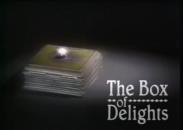 Screen cap from opening credits3597914532641488656.jpg
Screen cap from opening credits3597914532641488656.jpg The Box of Delights Alan Seymour , 1984 series - publisher film/TV
The Box of Delights Alan Seymour , 1984 series - publisher film/TVSeymour's adaptation of John Masefield's fantasy novel won a BAFTA Award for Best Children's Programme (Entertainment/Drama).
-
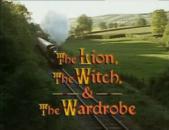 Screen cap from opening credits6903499606514312700.jpg
Screen cap from opening credits6903499606514312700.jpg The Lion, the Witch and the Wardrobe Alan Seymour , 1988 series - publisher film/TV
The Lion, the Witch and the Wardrobe Alan Seymour , 1988 series - publisher film/TVThe first of Alan Seymour's adaptations of C.S. Lewis's classic fantasy novels, this marked the BBC's second major adaptation of Lewis (after a ten-part 1967 television serial, now lost). The Chronicles of Narnia series as a whole was later nominated for multiple Emmy Awards and BAFTAs.
-
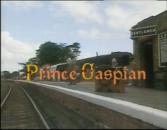 Screen cap from the opening titles of episode one7418023763897603363.jpg
Screen cap from the opening titles of episode one7418023763897603363.jpg Prince Caspian / Voyage of the Dawn Treader Alan Seymour , 1989 series - publisher film/TV
Prince Caspian / Voyage of the Dawn Treader Alan Seymour , 1989 series - publisher film/TVThe relatively slight Prince Caspian made only two episodes of this series, followed by its sequel, Voyage of the Dawn Treader.
-
This adaptation (for an ITV franchise) of a novel by British spy novelist Eric Ambler made a bit of a change from classic children's fantasy.
-
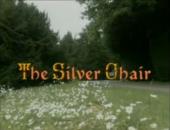 Screen cap from opening credits7510705563250167032.jpg
Screen cap from opening credits7510705563250167032.jpg The Silver Chair Alan Seymour , 1990 series - publisher film/TV
The Silver Chair Alan Seymour , 1990 series - publisher film/TVThe final adaptation for the BBC's Chronicles of Narnia series was the sixth of Lewis's seven novels: The Last Battle never made it to the screen.
-
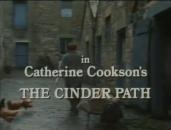 Screen cap from promotional trailer8968950579264716953.jpg
Screen cap from promotional trailer8968950579264716953.jpg The Cinder Path Alan Seymour , 1994 series - publisher film/TV
The Cinder Path Alan Seymour , 1994 series - publisher film/TVSeymour adapted some of Catherine Cookson's grim novels of the industrial north for an ITV franchise in the north east of England, including this adaptation of The Cinder Path.
-
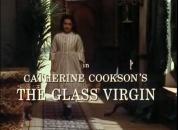 Screen cap from opening credits5875388612624961548.jpg
Screen cap from opening credits5875388612624961548.jpg The Glass Virgin Alan Seymour , 1995 series - publisher film/TV
The Glass Virgin Alan Seymour , 1995 series - publisher film/TVAnother adaptation of a Catherine Cookson novel.
-
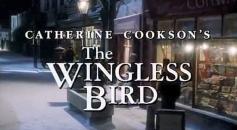 Screen cap from opening credits3708149204064541033.jpg
Screen cap from opening credits3708149204064541033.jpg The Wingless Bird Alan Seymour , 1997 series - publisher film/TV
The Wingless Bird Alan Seymour , 1997 series - publisher film/TVThe Wingless Bird was Seymour's last adaptation for British television, before he returned to work for Australian television.
-
-
(Display Format : Landscape)(Scheme : #bee9d7)
Australian Texts on BBC Radio
From novels to drama, the BBC regularly adapted Australian works as radio plays and radio serials.
The following list offers a selection of works. See a more complete list here.
-
First broadcast on the ABC in 1940, two different versions of this were produced on BBC radio: one in 1945 and one in 1946. Afford himself later adapted it into a short story, 'The Vanishing Trick'.
-
This is only one of eight adaptations of Alec Coppel's original stage play. The play was first produced in 1938, and continued to be adapted, including for Belgian television and by Coppel himself as a novel, for the next twenty years.
-
This fantasy radio play was first produced on the ABC in 1939. Ten years later, the BBC produced a version, which it broadcast on the Home Service as the Saturday Matinee.
-
Fergus Hume's crime novel had already been adapted once in the UK, as a film in 1915 (with an Eliot Stannard script). This adaptation, by a British script-writer, was the first of two BBC radio adaptations of this work.
-
Rex Rienits became perhaps Australia's most prolific export when he began working for the BBC in the 1950s. (His only close rival in terms of sheer output was Peter Yeldham.) And the first work he wrote for the BBC was this large-scale adaptation of Boldrewood's novel, produced with an almost entirely ex-pat Australian cast.
-
This 1958 adaptation of Hume's novel, the BBC's second, was written by Bruce Stewart, a New Zealand-Australian writer.
-
In 1975, the BBC began running a series called The New Australian Drama, which was a series of radio adaptations of Australian plays, the first of which was this adaptation of Peter Kenna's A Hard God.
-
The BBC followed A Hard God with this adaptation of Jim McNeil's prisoner drama.
-
The third in the BBC's series of new Australian drama was this radio version of Ron Blair's comic musical.
-
Jack Hibberd's play, adapted here for BBC radio, centred on the isolation of one human figure against the vastness of the Australian outback.
-
The Chapel Perilous; or, the Perilous Adventures of Sally Banner Dorothy Hewett , 1976 single work radio play
The Chapel Perilous doesn't seem to lend itself to a radio version, but the BBC selected it as the penultimate instalment of its New Australian Drama series.
-
The final instalment in the BBC's New Australian Drama series was this radio adaptation of Alex Buzo's The Front Room Boys.
-
-
-
(Scheme : #e63636)
Most of the works explored in this exhibition were made in Australia.
Of those that weren't made in Australia, most were made in either the UK or the USA, traditionally the two biggest markets for Australian script-writers.
But what of other countries? Which other countries have adapted Australian texts, and how?
In 1939, the Canberra Times published an article (14 May 1939, p.2) outlining the success of ABC radio playwrights in selling their work overseas:
When consideration is given to the distance of Australian centres from other countries and the consequent difficulties in communication, as well as to the traditional bias abroad against Australian literary work, the number of plays sold by our writers outside Australia is little short of astonishing.
The list shows that Australian writers have penetrated the broadcasting studios of the British Broadcasting Commission, of several other Empire countries including India, and even of European corporations—Germany, Holland, Belgium, Poland —where language barriers had to be surmounted.
J.F. Peters, the article says, has been broadcast in South Africa and India, Alexander Turner in Canada, Bernard Cronin in Palestine, Gordon Ireland in Czechoslovakia, and Charles Porter in Poland.
While unfortunately few of those 1930s' overseas successes have been traced, some Australian works embraced in countries outside the UK and the US are more visible.
Explore the various adaptations produced in different geographical regions below.
-
This interactive map shows the origins of selected overseas adaptations.
Click on the pins to find out more.
◄ ❘ ► ❘ ♼⚑⚐💾✂South Africa "Ride the High Wind" (1965): Adventure film co-written by Australian screenwriter Ivan Goff, based on the 1965 novel "North of Bushman's Rock". -30.559482 22.937506Peru "The Dolphin: Story of a Dreamer" ("El Delfín: La Historia de Un Soñador"; 2009): Peruvian-German-Italian co-produced animated fantasy film, based on Peruvian-Australian author Sergio Bambaren's 1995 novel. -9.189966999999998 -75.015152India "Selection Day" (2018): TV series about cricket based on Indian-Australian writer Aravind Adiga's 2016 novel. 20.593684 78.96288Japan Several Harlequin Mills and Boon romance novels have been adapted into romance manga graphic novels since 2009, both in Japanese and English. 36.204824 138.252924Romania "Umbre" (2014): Romanian language adaptation of 2011 Australian TV series "Small Time Gangster". 45.943161 24.96676Netherlands "Celblok H" (2014): Dutch language adaptation of popular 2013 Australian TV crime series "Wentworth". 52.13263300000001 5.291266Russia "Meri Poppins, do svidaniya" ("Mary Poppins, Goodbye"; 1983): Russian language TV musical mini-series adaptation of Queensland-born P. L. Travers's classic 1934 children's book "Mary Poppins". 61.52401 105.318756 -
-
(Display Format : Landscape)(Scheme : #bee9d7)
Central and Southern Europe
-
 Screen cap from promotional trailer8907518821211748188.jpg
Screen cap from promotional trailer8907518821211748188.jpg Umbre Bogdan Mirica , 2014 series - publisher film/TV
Umbre Bogdan Mirica , 2014 series - publisher film/TVRelu's family know that he is a taxi driver. They don't know that he is also an enforcer for a small-time gangster.
This Romanian series was based on the Australian television series Small Time Gangster.
-
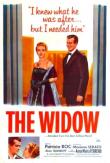 This image has been sourced from online.1697652808784401370.jpg
This image has been sourced from online.1697652808784401370.jpg La Vedova X Lewis Milestone , Louis Stevens , 1955 single work film/TV
La Vedova X Lewis Milestone , Louis Stevens , 1955 single work film/TVLa Vedova X is an Italian and French co-production, based on a novel by Susan Yorke.
-
This Italian telemovie was based on Pat Flower's The Tape Recorder, which was also adapted for production in the UK and the US.
-
 Screen cap from promotional trailerimage_C[hash]a5[semi].jpg
Screen cap from promotional trailerimage_C[hash]a5[semi].jpg Solo un Padre Giulia Calenda , Maddalena Ravagli , 2008 single work film/TV
Solo un Padre Giulia Calenda , Maddalena Ravagli , 2008 single work film/TVSolo un Padre is an Italian production (co-produced by Cattleya and Warner Bros Italia) based on Nick Earls's novel Perfect Skin, about a dermatologist who finds himself a single father.
-
This Czech production is an adaptation of Alan Marshall's autobiographical story of childhood, I Can Jump Puddles.
-
-
(Display Format : Landscape)(Scheme : #bee9d7)
Western and Northern Europe
-
This adaptation of Hugh Hastings's play, Seagulls Over Sorrento, was made for West German television.
-
West German television was also the target for this adaptation of Alec Coppel's The Gazebo, an oft-adapted work.
-
A co-production between West Germany and the UK, The Second Victory was an adaptation of Morris West's novel The Backlash, about the murder of a British officer's driver.
-
Die ene Dag is a Dutch television production of Alan Seymour's play The One Day of the Year.
-
Belgian television viewers were the target of this adaptation of the prolific Alec Coppel's I Killed the Count.
-
Another adaptation of Hugh Hastings's play, this one was filmed in Swedish and broadcast in Finland.
-
A second adaptation of The Gazebo, this one based on Claude Magnier's French adaptation.
-
Claude Magnier's French adaptation was also the basis for this television production, made some twenty-four years later.
-
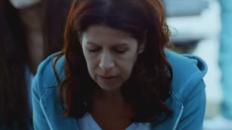 Screen cap from promotional trailer1821380481436196508.jpg
Screen cap from promotional trailer1821380481436196508.jpg Celblok H Eva Aben , Pauline Van Mantgem , Nicolette Steggerda , Nienke Römer , 2014 series - publisher film/TV
Celblok H Eva Aben , Pauline Van Mantgem , Nicolette Steggerda , Nienke Römer , 2014 series - publisher film/TV -
 Screen cap from opening credits.3913651729094339129.png
Screen cap from opening credits.3913651729094339129.png Neben Der Spur 2014 series - publisher film/TV
Neben Der Spur 2014 series - publisher film/TVStarting in 2014, German television began adapting Michael Robotham novels as telemovies, under the umbrella title Neben Der Spur. As of January 2021, seven novels had been adapted for the series.
-
 Screen cap from opening credits.7138129767590481865.png
Screen cap from opening credits.7138129767590481865.png Westerdeich 1995 series - publisher film/TV
Westerdeich 1995 series - publisher film/TVShort-lived at only 37 episodes, this was a German adaptation of Australian soap opera E Street.
-
 Screen cap from opening credits.1103813482640014258.png
Screen cap from opening credits.1103813482640014258.png Verbotene Liebe 1995 series - publisher film/TV
Verbotene Liebe 1995 series - publisher film/TVCreated by Reg Watson and taking its inspiration from Australian soap opera Sons and Daughters, this series soon turned into its own powerhouse German glam series, running for over 4000 episodes.
-
 Screen cap from opening credits.7128981882417032207.png
Screen cap from opening credits.7128981882417032207.png Gute Zeiten, schlechte Zeiten 1992 series - publisher film/TV
Gute Zeiten, schlechte Zeiten 1992 series - publisher film/TVFollowing in the footsteps of the Dutch, who had already begun their own variant, this German program, which began in 1992 and had run for over 900 episodes by early 2021, was based on The Restless Years, although it diverged from its Australian parent's storylines after 200-odd episodes.
-
 Screen cap from opening credits.8860212218326518499.png
Screen cap from opening credits.8860212218326518499.png Goede tijden, slechte tijden 1990 series - publisher film/TV
Goede tijden, slechte tijden 1990 series - publisher film/TVTwo years before the German variant, this Dutch adaptation of The Restless Years hit the airwaves: it was still running thirty years later in 2020.
-
-
(Display Format : Landscape)(Scheme : #bee9d7)
Asia and Eurasia
-
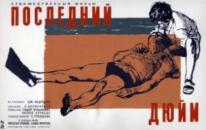 Advertising poster5795684789470928079.jpg
Advertising poster5795684789470928079.jpg ПОСЛЕДНИЙ ДЮЙМ Leonid Belokurov , 1958 single work film/TV
ПОСЛЕДНИЙ ДЮЙМ Leonid Belokurov , 1958 single work film/TVThis Russian adaptation of a James Aldridge short story sees a young boy struggling to save his father, who has been badly mauled by a shark.
-
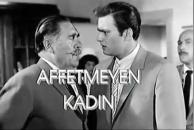 Screen cap from opening credits1515043350919579582.jpg
Screen cap from opening credits1515043350919579582.jpg Affetmeyen Kadin Osman F. Seden , 1964 single work film/TV
Affetmeyen Kadin Osman F. Seden , 1964 single work film/TVIvan Goff (born in Perth, from which he—in his own version—hurriedly fled in his teens, by stowing away on a ship) and his long-time American collaborator, Ben Roberts, wrote the play Portrait in Black, which was frequently adapted, including for this Turkish production.
Goff and Roberts, of course, went on to create Charlie's Angels.
-
 Screen cap, showing the combination of traditional animation and CGI.deltoraquestimage_C[hash]p-t.jpg
Screen cap, showing the combination of traditional animation and CGI.deltoraquestimage_C[hash]p-t.jpg Deltora Quest Akira Okeya , Reiko Yoshida , Natsuko Takahashi , Masahiro Yokotani , Kuniaki Kasahara , Gregory Barry , Paul Baldwin (translator), 2007-2008 series - publisher film/TV
Deltora Quest Akira Okeya , Reiko Yoshida , Natsuko Takahashi , Masahiro Yokotani , Kuniaki Kasahara , Gregory Barry , Paul Baldwin (translator), 2007-2008 series - publisher film/TVAustralian children's texts can be quite popular in Japan, and this anime version of Deltora Quest was so popular, they added a new season with all new storylines once they'd run out of books to base it on.
-
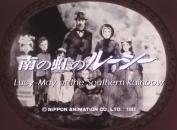 Screen cap from opening credits4439372947800494423.jpg
Screen cap from opening credits4439372947800494423.jpg Lucy of the Southern Rainbow Akira Miyazaki , 1982 series - publisher film/TV
Lucy of the Southern Rainbow Akira Miyazaki , 1982 series - publisher film/TVLucy of the Southern Rainbow is also anime, based on the 1982 children's novel Southern Rainbow.
-
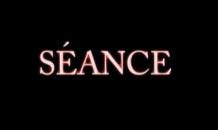 Screen cap from trailer (in translation)5987294616963183308.jpg
Screen cap from trailer (in translation)5987294616963183308.jpg Kôrei Tetsuya Onishi , Kiyoshi Kurosawa , 2000 single work film/TV
Kôrei Tetsuya Onishi , Kiyoshi Kurosawa , 2000 single work film/TVThis Korean film is based on Mark McShane's novel Seance on a Wet Afternoon, but puts its own supernatural, K-horror spin on the story.
-
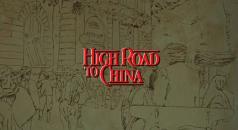 Screen cap from promotional trailer951033793244159090.jpg
Screen cap from promotional trailer951033793244159090.jpg High Road to China Sandra Weintraub Roland , S. Lee Pogostin , 1983 single work film/TV
High Road to China Sandra Weintraub Roland , S. Lee Pogostin , 1983 single work film/TVA production shared between the US, Hong Kong, and the former Yugoslavia, High Road to China was a rollicking action-romance film based on Jon Cleary's novel High Road to China—at least in name. Indeed, little but the name survived the adaptation process in this case.
-
 Image courtesy of publisher's website.8210415474589027789.png
Image courtesy of publisher's website.8210415474589027789.png Miss S 2020 series - publisher film/TV
Miss S 2020 series - publisher film/TVTaking the action and the glorious frocks to Shanghai in the 1920s, this spectacular series is a remake of Miss Fisher's Murder Mysteries, based on the Kerry Greenwood novels.
-
-
-
You might be interested in...

- Australians and Adaptations
- Adaptations on Australian Screens: A Brief Introduction
- Adaptations on the Australian Screen in the Silent Era, 1900-1929
- Australian Writers Adapted Internationally
- Adaptations on Television
- Data Visualisation: Adaptations from 2010-2019
- The Frequently Adapted
- Acknowledgements

- Australians and Adaptations
- Adaptations on Australian Screens: A Brief Introduction
- Adaptations on the Australian Screen in the Silent Era, 1900-1929
- Australian Writers Adapted Internationally
- Adaptations on Television
- Data Visualisation: Adaptations from 2010-2019
- The Frequently Adapted
- Acknowledgements

